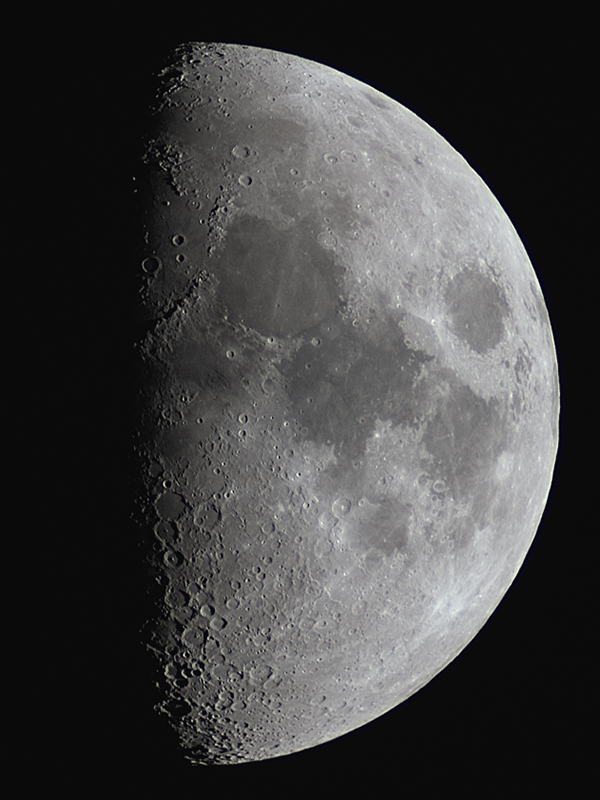
Telescope: Orion AstroView 90 EQ @ f/10
Camera: Canon 450D (Rebel XSi, stock)
Filter: None
Exposure: 11×1/500sec, ISO 400 saved as RAW
Software: Registax, Nebulosity, Photoshop
This image was taken on the evening of December 22nd, about 24 hours after first quarter. The source images were taken by first setting the focus on Vega using a Bahtinov mask and then swinging over to the moon take a few test shots to check the exposure, using the camera’s histogram function to make sure that the image was not over-exposed. I then framed the field so that the moon would drift across the center of the field as I took a series of pictures. Using a remote switch and the camera’s mirror lock-up function I paused about 5 seconds between each frame to allow vibrations to settle. I took two sets of images of about 5 frames each, resetting the field between each set. The source images were then converted to TIFFs, roughly aligned and cropped in Photoshop, and then stacked and sharpened in Registax. Using Photoshop I rotated and framed the moon and then separated the image into its separate red, green, and blue colors. Since the AV90 is a Fraunhofer doublet it is optimized for green with the red being slightly blurred and the blue being relatively soft. I took the green data as the luminance channel and layered the color data back on top of it to preserve both the sharpness and color of the original image. This was flattened and saved as the final image. It sounds like a lot of work, but quick’n easy once you get the hang of it; maybe 20 minutes from start to finish.
Recent Comments